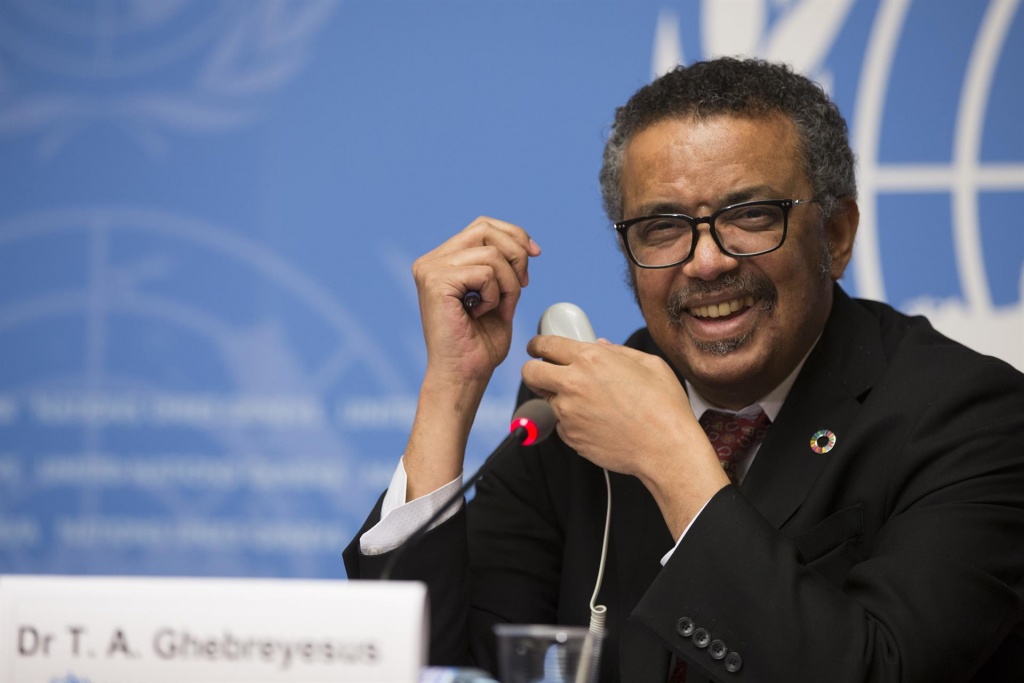
The global race to find a vaccine for coronavirus will be bolstered by support announced by the Prime Minister on 5 March 2020, funded by the UK’s international development budget.
Supported by UK funding, eight possible coronavirus vaccines are currently under development and efforts are being made to get any viable vaccines from sequencing of the virus to clinical testing in under a year, a record timeframe.
Governments around the world could then work with pharmaceutical companies to get vaccines into production and use. Today’s additional support will bring the UK’s investment into COVID-19 vaccine research to £65 million.
UK experts are leading the scientific and medical response to the global coronavirus outbreak and the UK was one of the first countries to establish a laboratory test for the virus. However, no country has yet found a method of diagnosing coronavirus without sending samples to a lab for testing, a process that can take several days.
Today the Prime Minister visited Mologic lab in Bedfordshire which is using UK aid funding to develop rapid diagnostic test devices for coronavirus to allow medical professionals or potentially even individuals at home to identify the disease quickly without relying on specialist facilities. This will mean patients can be treated more quickly, reducing the risk of them passing the virus onto others and helping them to recover quickly. The lab is building on extensive experience creating similar tests for other infections.
Efforts to develop a diagnostic test form part of the Government’s work to limit the spread of the virus, investing in and informed by scientific research.
A rapid diagnostic test can also be used by countries around the world that are not currently able to diagnose the virus at all. Low-income countries without the medical infrastructure to conduct laboratory tests or who do not have access to the necessary reagents are not able to differentiate coronavirus from other common causes of fever such as other bacterial, viral and parasitic infections.
The majority of cases in those countries are therefore going unchecked, increasing the risk of the virus spreading both locally and around the world. To ensure access to the technology, the test will therefore be jointly manufactured in the UK and Senegal the first time a diagnostic has been produced in the continent, supported by UK aid funding.
Today’s announcement builds on the plan set out by the Prime Minister earlier this week to tackle coronavirus in the UK. The Government is doing everything possible, based on the advice of world-leading scientific experts, to prepare for all eventualities. This plan has four strands – containing the virus, delaying its spread, researching its origins and cure, and mitigating the impact should the virus become more widespread.
Today’s funding package, which includes support for the World Health Organization’s Flash Appeal, will also help vulnerable countries prepare for the spread of the disease in other ways.
UK-funded infectious disease experts are working in developing countries, which have large urban populations and transport links to the UK and to China and other countries experiencing large outbreaks. Experts will support countries to prepare for and respond to suspected cases, for example by creating effective isolation zones.
International efforts are being coordinated by a new UK Government Coronavirus International Taskforce, bringing together expertise from the Department for International Development and the Foreign and Commonwealth Office.
Coronavirus is the biggest threat in countries whose healthcare systems are unable to cope with large outbreaks. Ensuring those countries have mechanisms in place will prevent a surge of cases, which would also present risks to us at home.
Today’s announcement brings the UK’s total support to fight the virus internationally to £91 million.
Prime Minister Boris Johnson said: Keeping the British people safe is my number one priority, and that’s why I’ve set out our four-part plan to contain, delay, mitigate and research coronavirus.
We are ensuring the country is prepared for the current outbreak, guided by the science at every stage. But we also need to invest now in researching the vaccines that could help prevent future outbreaks.
I’m very proud that UK experts backed by government funding are on the front line of global efforts to do just that.
International Development Secretary Anne-Marie Trevelyan said: The UK is well-prepared to respond to potential cases of coronavirus at home, but a global response is needed to effectively combat the disease.
We are investing UK aid and using the best of British expertise and science to find new ways to vaccinate against, treat and diagnose the virus, and to support global efforts to prevent further outbreaks around the world.
Every action that we take to prevent the virus spreading makes the UK safer.
Government Chief Scientific Officer Sir Patrick Vallance said: Rapid testing is going to be key to managing this outbreak, but ultimately vaccines are going to provide the long-term protection we need.
The UK has some of the world’s leading scientists and this money will help in our fight to tackle this new disease.
Director-General of the World Health Organization Dr Tedros Adhanom Ghebreyesus said: The United Kingdom’s support for the global response to the new coronavirus outbreak will protect the health of people in many parts of the world, from assisting countries with fragile health systems to fuelling the fight to find a vaccine.
At this critical time in the battle against COVID-19, the WHO is grateful for the UK’s solidarity and commitment to keeping people safe at home and around the world.
It comes ahead of the UK hosting the “Global Vaccine Summit 2020” in June, demonstrating the UK’s leadership in global health security.
Kindly follow us on twitter:@AfricanVoice2










